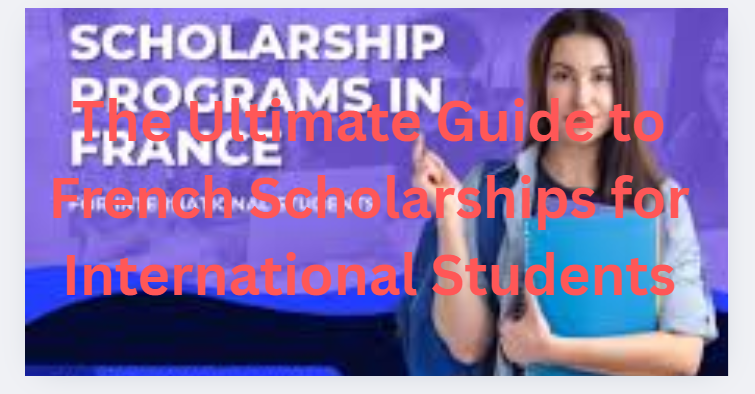
Dreaming of studying in France but concerned about the costs? You’re not alone. Many international students share this worry, but here’s the encouraging truth: France offers numerous scholarship opportunities that can make your educational dreams surprisingly affordable. Having guided many students through this process, I can assure you that with the right approach, funding your French education is entirely possible.
France has a long tradition of welcoming international students, and the government and institutions actively support this through various funding programs. Whether you’re imagining yourself strolling through Parisian streets or studying in the picturesque French countryside, there’s likely a scholarship that can help make it happen.
Understanding the French Scholarship System
The first thing to know is that France offers scholarships at multiple levels: government-funded programs, university-specific awards, and organization-sponsored opportunities. What’s particularly appealing is that many of these are available for both EU and non-EU students.
French scholarships typically fall into these categories:
- Government scholarships from the French Ministry of Europe and Foreign Affairs
- University scholarships from individual institutions
- Organization scholarships from foundations and private entities
- Eiffel Scholarship for master’s and PhD students
- Erasmus+ programs for European mobility
Major Scholarship Programs You Should Know

Let’s start with the most prominent scholarships that attract international students worldwide:
The Eiffel Excellence Scholarship Program
This is perhaps the most prestigious scholarship for international students in France. Created by the French Ministry for Europe and Foreign Affairs, it targets high-achieving students at master’s and PhD levels. The Eiffel scholarship provides a monthly allowance, travel costs, and various other benefits. The competition is intense, but for students with outstanding academic records, it’s worth the effort.
French Government Scholarships (Bourses du Gouvernement Français)
These scholarships are offered through French embassies in students’ home countries. They cover various fields and study levels. The application process typically goes through the French embassy or campus France office in your country, so it’s essential to check their specific requirements and deadlines.
Erasmus Mundus Joint Master Degrees
While not exclusively French, many of these programs involve French universities as partners. These scholarships cover tuition, travel, and living expenses for international students pursuing joint master’s degrees across European universities.
University-Specific Scholarships
Many French universities and grandes écoles offer their own scholarship programs:
Sciences Po Emile Boutmy Scholarship
For non-EU international students at Sciences Po, this scholarship is awarded based on merit and financial need. It can cover partial to full tuition costs, depending on the student’s profile.
HEC Paris Scholarships
HEC offers various merit-based scholarships for international students across its programs. While full scholarships are rare, many students receive substantial financial aid that makes studying at this prestigious institution more accessible.
Université Paris-Saclay International Master’s Scholarships
These scholarships support international students enrolled in master’s programs at Université Paris-Saclay. They provide €10,000 per year along with travel and visa expenses.
Specialized and Regional Scholarships
France also offers scholarships targeting specific regions and fields of study:
The Charpak Program
Designed specifically for Indian students, the Charpak scholarship offers opportunities for exchange programs, master’s degrees, and research internships in France.
Make Our Planet Great Again Scholarships
These scholarships focus on climate change and sustainability studies, supporting international students interested in environmental research.
Région Auvergne-Rhône-Alpes Scholarships
Various French regions offer scholarships to attract international students to their universities and research institutions.
Practical Steps to Secure Your Scholarship
Based on my experience helping students succeed, here’s what actually works:
Start your search at least 12 months before your intended start date. Scholarship deadlines come quickly, and you’ll need time to prepare strong applications.
Create a systematic approach to track opportunities. Keep a spreadsheet with deadlines, requirements, and application status. Organization is crucial when applying to multiple scholarships.
Understand that each scholarship has its own priorities. Some value academic excellence above all else, while others prioritize specific research interests or career goals. Tailor your applications accordingly.
For French government scholarships, the application typically goes through the French embassy or Campus France office in your home country. Make sure to register on the Campus France website of your country.
Build relationships with professors who can write strong recommendation letters. Provide them with your resume and a clear explanation of what each scholarship values.
Common Application Mistakes to Avoid
I’ve seen many promising applications fail because of avoidable errors:
Waiting until the last minute is the most common mistake. Give yourself ample time to prepare each application properly.
Using a generic motivation letter for every application. Scholarship committees can spot this immediately. Make each application specific to the opportunity.
Not following instructions precisely. If they ask for documents in French, don’t submit them in English. If they have specific formatting requirements, follow them exactly.
Applying for scholarships you don’t qualify for. Read eligibility requirements carefully to avoid wasting time.
Submitting applications with language errors. If applying in French, have a native speaker proofread your materials. Even for English applications, ensure your writing is polished.
Giving up after rejections. The scholarship search is a numbers game. Even excellent candidates often need to apply for multiple opportunities.
Language Requirements and Preparation
While many programs in France are now offered in English, having French language skills can significantly enhance your scholarship opportunities. Some scholarships even require French proficiency.
Consider taking French courses before applying. Even basic French skills can strengthen your application and help you settle in more easily once you arrive. Many French cultural centers worldwide offer affordable language courses.
Final Thoughts and Encouragement
Securing funding for study in France requires dedication, but thousands of international students succeed each year. The key is to start early, be organized, and persist through the challenges.
Remember that smaller scholarships can add up. Don’t overlook modest awards—they can help cover living expenses, books, or travel costs. Many students combine several partial scholarships to fund their education.
The investment you make in searching and applying for scholarships now can pay off tremendously in the future. A French education offers not only academic excellence but also cultural enrichment that will benefit you personally and professionally.
With careful planning and determined effort, you can find the financial support you need to begin your educational journey in France. The opportunity is there—it’s waiting for you to claim it.
Frequently Asked Questions: French Scholarships for International Students
What types of scholarships are available in France?
France offers government scholarships (like Eiffel Excellence), university-specific awards, regional scholarships, and programs for students from specific countries. There are also scholarships for particular fields of study, such as sciences, arts, or business.
Do I need to speak French to get a scholarship?
It depends on the program. Many graduate programs are offered in English, but French proficiency can strengthen your application. Some scholarships specifically require French language skills, while others don’t. Always check the language requirements for each scholarship.
How competitive are French scholarships?
Highly competitive, but don’t be discouraged. The Eiffel Scholarship, for example, receives thousands of applications for limited spots. However, many qualified students don’t apply, so a strong, well-prepared application stands a good chance.
When should I start applying for scholarships?
Start 12-15 months before your intended start date. Scholarship deadlines are often much earlier than university application deadlines. For programs starting in September 2025, most scholarship applications will open in Fall 2024.
Can I work while studying on a scholarship?
International students in France can work up to 20 hours per week during the academic year. However, some scholarships may have specific conditions about employment, so check your award terms carefully.